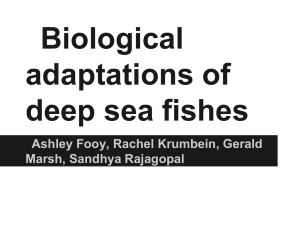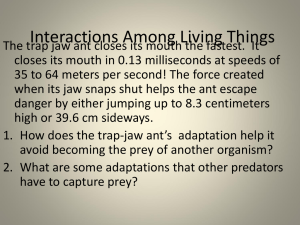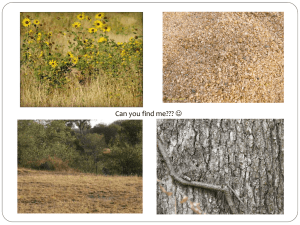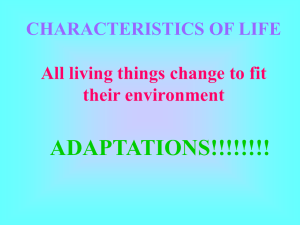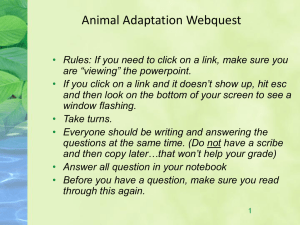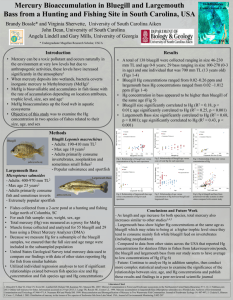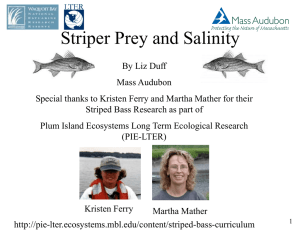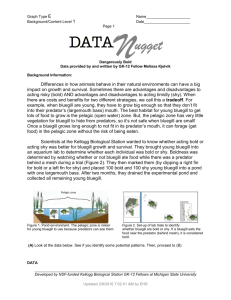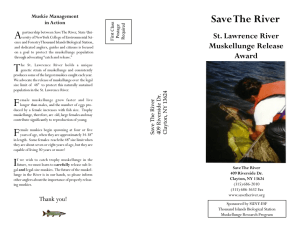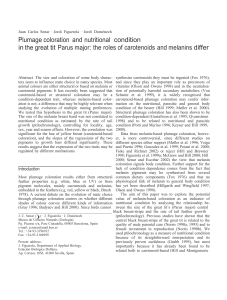Fashion a Fish
advertisement
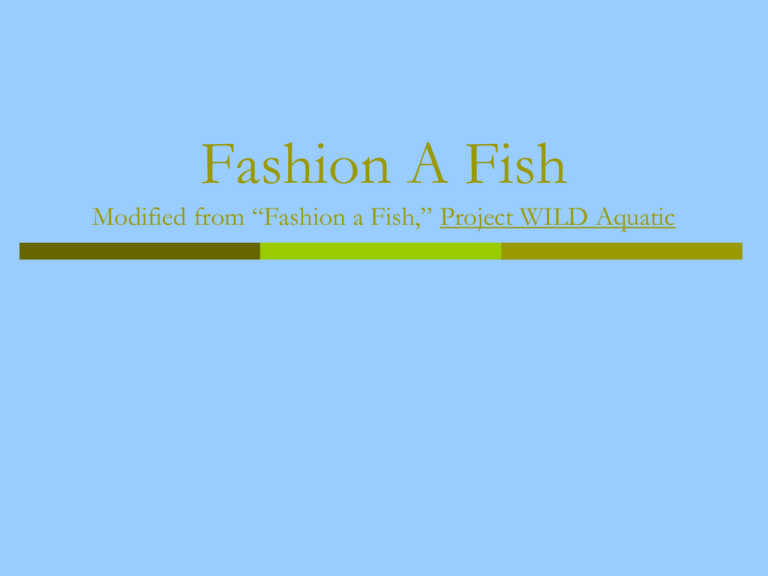
Fashion A Fish Modified from “Fashion a Fish,” Project WILD Aquatic Objectives Students will be able to: Describe the adaptations of fish to their environments Describe how adaptations can help fish survive in their habitats Interpret the importance of adaptation in animals Construct a fish with a given set of adaptations Background Aquatic Animal adaptations have occurred over the course of several years Adaptations increase likelihood of survival Some have adapted to a point that they are vulnerable to slight changes Mouth 1: Sucker Mouth Shaped Advantage: Feeds on very small plants and animals Examples: Sucker, Carp Mouth 2: Elongated upper jaw Advantage: feeds on prey it looks down on Examples: Spoonbill, Sturgeon Mouth 3: Elongated Lower Jaw Advantages: Feeds on prey it sees above Examples: Barracuda, snook Mouth 4: Duckbill Jaws Advantages: Grasps prey Examples: Muskellunge, Pike Mouth 5: Extremely Large Jaws Advantages: Surrounds Prey Examples: Bass, Grouper Body Shape 1: Torpedo Shape Advantages: Fast Moving Examples: Trout, Salmon, Tuna Body Shape 2: Flat Bellied Advantages: Bottom Feeder Examples: Catfish, Sucker Body Shape 3: Vertical Disk Advantages: Feeds above or below Examples: Butterfish, Bluegill Body Shape 4: Horizontal Disk Advantages: Bottom Dweller Examples: Flounder, Halibut Body Shape 5: Hump Backed Advantages: Stable in fast-moving water Examples: Sockeye, Salmon, Chub, Razorback Coloration 1: Light-Colored Belly Advantages: Predators have difficulty seeing it from below Examples: Most minnows, Perch, Tuna, Mackerel Coloration 2: Dark Upper Side Advantages: Predators have difficulty seeing it from above Examples: Bluegill, Crappie, Barracuda, Flounder Coloration 3: Vertical Stripes Advantages: Can hide in vegetation Examples: Muskellunge, Pickerel, Bluegill Coloration 4: Horizontal Stripes Advantages: Can hide in vegetation Examples: Yellow and White Bass, Snook Coloration 5: Mottled Coloration Advantages: Can hide in rocks and on bottom Examples: Trout, Grouper, Rock Bass, Hogsucker Reproduction 1: Eggs deposited in bottom Advantages: Hidden from Predators Examples: Trout, Salmon, most minnows Reproduction 2: Eggs deposited in nests Advantages: Protected by adults Examples: Bass, Stickleback Reproduction 3: Floating Eggs Advantages: Dispersed in high numbers Examples: Striped Bass Reproduction 4: Eggs attached to vegetation Advantages: Stable until hatching Examples: Perch, Northern Pike, Carp Reproduction 5: Live Bearers Advantages: High Survival Rate Examples: Guppies
